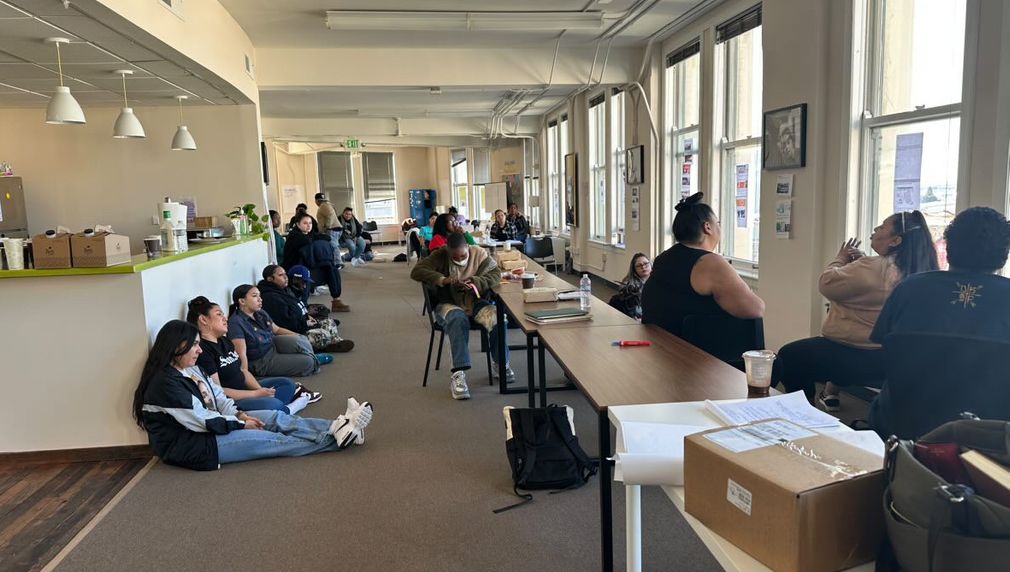Empowerment Pathways: Transforming Lives of System-Impacted Youth
Our initiative, "Empowerment Pathways," empowers system-impacted youth in Los Angeles through comprehensive training and advocacy. Led by youth organizers with lived experience, we aim to break cycles of marginalization by providing skills, support, and opportunities for economic and community empowerment.

What is the primary issue area that your application will impact?
Youth economic advancement
In what stage of innovation is this project, program, or initiative?
Expand existing project, program, or initiative (expanding and continuing ongoing, successful work)
What is your understanding of the issue that you are seeking to address?
The issue we are addressing is the lack of economically empowering opportunities for system-impacted youth in Los Angeles. System-impacted youth are individuals who have been affected by the criminal justice system, either through personal involvement or through the involvement of family members. These youth often face significant barriers to education, employment, and social integration, which can perpetuate cycles of poverty and marginalization.
Describe the project, program, or initiative this grant will support to address the issue.
To tackle this issue, we aim to train and facilitate three youth organizers for 700 hours. These organizers will work on projects and programs designed to empower their peers, advocate for systemic change, and create pathways to economic opportunities. By providing training and hands-on experience, we aim to equip these youth with the skills, knowledge, and networks needed to become effective leaders and change-makers in their communities.
Specifically, our youth organizers will be responsible for the following:
De-Escalation Training: Learning and teaching conflict resolution techniques to help manage and diffuse potentially volatile situations within our communities.
Street-Based Outreach: Engaging directly with other system-impacted youth in their neighborhoods to provide support, resources, and information about available opportunities.
Advocacy Day 2025: Planning and participating in a major advocacy event aimed at bringing attention to the issues faced by system-impacted youth and promoting policy changes that support their economic empowerment.
Describe how Los Angeles County will be different if your work is successful.
If our work is successful, Los Angeles County will see empowered youth leaders who advocate for their peers and contribute positively to society. Economic opportunities for system-impacted youth will increase, breaking cycles of poverty and reducing reliance on social services. Effective de-escalation training will lead to safer communities with fewer instances of violence. Enhanced community engagement will foster a sense of belonging and cohesion. Advocacy efforts, like Advocacy Day 2025, will drive meaningful policy changes that support system-impacted youth. Robust support networks will be established, providing guidance and resources for long-term success. The broader community will start viewing system-impacted youth more positively, reducing stigmas and fostering inclusivity. Overall, our initiative will create a more just, equitable, and prosperous Los Angeles County.
What evidence do you have that this project, program, or initiative is or will be successful, and how will you define and measure success?
This is an existing model that we are enhancing by expanding the training from 350 hours to 700 hours. We measure its impact through several methods:
1. Participant Outcomes:Tracking the number of youth who complete the program, their progress in acquiring leadership and advocacy skills, and their success in securing jobs or internships.
2. Feedback and Surveys: Collecting feedback from participants, mentors, and community stakeholders to assess satisfaction and perceived impact.
3. Community Impact:Monitoring changes in community dynamics, such as reduced conflict and increased engagement, using local crime statistics and participation rates in outreach events.
4. Policy Influence: Evaluating the impact of our advocacy efforts by tracking policy changes and reforms benefiting system-impacted youth.
Approximately how many people will be impacted by this project, program, or initiative?
Direct Impact: 3.0
Indirect Impact: 350.0